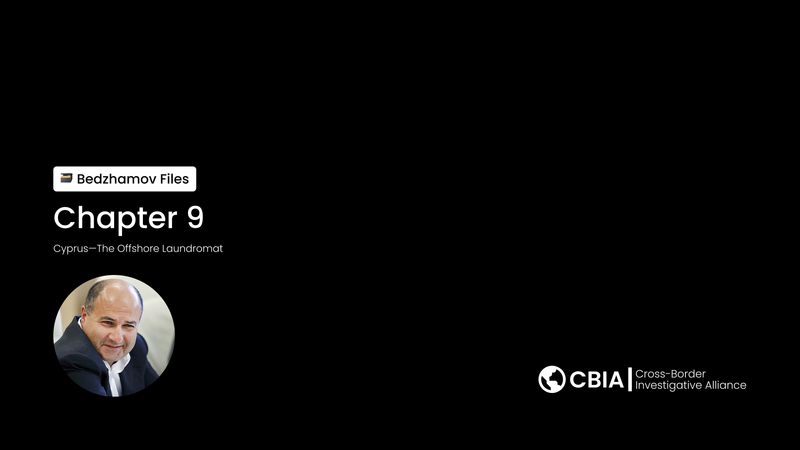Epilogue: A Blueprint for Reform

The Vneshprombank saga represents far more than an isolated case of banking fraud. It stands as a comprehensive indictment of a global financial system designed to enable, rather than prevent, the systematic looting of financial institutions by those with sufficient resources and connections. As the legal battles continue across multiple jurisdictions, the broader lessons of this case demand urgent attention from policymakers, regulators, and citizens concerned with financial integrity.
The scale of the Vneshprombank fraud—with claims against Bedzhamov alone "pleaded at US$1.34bn" [1]—speaks to fundamental vulnerabilities in how we regulate banking, monitor cross-border financial flows, and hold perpetrators accountable. Seven years after the bank's collapse, the contrasting fates of the sibling co-conspirators illuminate the stark injustices embedded in our current approach.
"There are two justice systems operating globally today," explained a veteran financial crimes prosecutor. "One for ordinary citizens, who face swift and severe consequences for even minor financial transgressions, and another for the ultra-wealthy, who can use geography, legal complexity, and professional enablers to shield themselves from meaningful accountability."
This disparity is vividly illustrated by the siblings' divergent paths. Larisa Markus serves her nine-year sentence in a Russian penal colony, while Georgy Bedzhamov remains in London, fighting extradition and asset recovery through sophisticated legal maneuvers. This outcome reflects not random chance but the systemic advantages available to those with sufficient resources to place themselves beyond the reach of their home jurisdiction's justice system.
The case exposes three critical failures that must be addressed for meaningful reform:
1. Offshore Secrecy: The Shield Against Accountability
The Vneshprombank fraud succeeded largely because global financial architecture enables wealth to be moved offshore and hidden behind layers of corporate secrecy. From Cypriot shell companies to British Virgin Islands holding structures to UK property owned through anonymous entities, the siblings exploited a system designed to obscure rather than illuminate beneficial ownership.
"The current system treats financial secrecy as a legitimate service to be bought and sold rather than a threat to global financial integrity," noted one transparency advocate. "Until this fundamentally changes, similar frauds will continue to seem like rational calculations for those with access to offshore services."
Recent reform efforts, while representing incremental progress, have failed to address this core problem. The UK's overseas entities register, the EU's beneficial ownership requirements, and similar measures contain significant loopholes that sophisticated actors can exploit to maintain anonymity. A global system of public registries with verified beneficial ownership information—covering companies, real estate, and other assets—represents the minimum necessary reform to address this vulnerability.
The leaked Pandora Papers revealed how professional enablers helped Bedzhamov backdate documents and restructure assets following his sister's arrest—maneuvers that would be far more difficult in a system with comprehensive transparency. Without public visibility into who owns what, enforcement will remain reactive and largely ineffective against sophisticated financial criminals.
2. Professional Accountability: Punishing Perpetrators, Not Just Participants
The Vneshprombank case demonstrates how financial crime at this scale requires extensive professional support—lawyers who create offshore structures, accountants who prepare misleading financial statements, bankers who process suspicious transactions without adequate scrutiny. Yet while Markus serves a prison sentence, these enablers have faced minimal consequences for their role in facilitating a multibillion-dollar fraud.
"The architects rarely face consequences commensurate with their role," observed anti-corruption activist Bill Browder. "Until we hold accountants, lawyers, and bankers criminally accountable for facilitating massive fraud, we're merely treating symptoms rather than causes."
Reform requires fundamentally rethinking how we regulate the gatekeepers of the financial system. Self-regulation has proven inadequate, with professional bodies reluctant to impose meaningful sanctions on members who facilitate questionable transactions. Independent regulatory bodies with real enforcement powers, criminalization of wilful blindness in professional services, and international coordination to prevent regulatory arbitrage represent necessary steps toward meaningful accountability.
The May 2024 High Court judgment highlighted how even the process of seeking recovery for fraud victims generates opportunities for professional intermediation, with the court addressing concerns about the relationship between the bankruptcy administrators and A1, the litigation funder backing asset recovery efforts [1]. This further layer of complexity illustrates how deeply professional intermediaries are embedded in both enabling fraud and addressing its aftermath.
3. Victim Compensation: Restitution, Not Just Punishment
Perhaps the most troubling aspect of the Vneshprombank case is how little has been recovered for the thousands of ordinary depositors who lost their savings. While legal proceedings continue across multiple jurisdictions, most victims have received only the modest amounts covered by deposit insurance—a fraction of their losses.
"The system excels at freezing assets but struggles with actual recovery and distribution to victims," explained one asset recovery specialist. "Lengthy legal proceedings consume resources that should go to compensation, while professional intermediaries extract value at every step."
Meaningful reform would prioritize victim compensation over procedural complexity. This would include expedited confiscation proceedings for clearly criminal assets, prevention of strategic bankruptcy filings designed to frustrate recovery, and international agreements to recognize and enforce judgments across jurisdictions.
The current approach—where recovery efforts can span decades and consume significant portions of the recovered funds in legal and administrative costs—effectively denies justice to victims even when perpetrators are identified and their assets located. A system that prioritizes victim compensation would create dedicated mechanisms to expedite recovery and ensure that compensation reaches those harmed rather than being consumed by the process itself.
The Path Forward: Political Will and International Cooperation
Addressing these systemic failures requires both political courage and unprecedented international cooperation. The current fragmented approach—with regulations varying dramatically across jurisdictions—creates opportunities for regulatory arbitrage that sophisticated actors readily exploit.
"National solutions cannot address what is fundamentally a global problem," noted one former financial regulator. "So long as there's a single jurisdiction offering secrecy services or minimal professional accountability, wealth will flow there and the problems will persist."
Recent developments have created unique opportunities for reform. The sanctions imposed following Russia's invasion of Ukraine demonstrated that when political will exists, Western governments can act decisively to identify and freeze assets of concern. Similar determination applied to proceeds of financial crime could transform the risk-reward calculation for potential perpetrators.
The Vneshprombank case makes clear that the technical challenges in addressing financial crime are less significant than the political obstacles. We know how to create beneficial ownership registries, regulate professional enablers effectively, and expedite asset recovery. What remains lacking is the political determination to challenge powerful interests that benefit from the status quo.
For now, the message to kleptocrats and financial criminals remains distressingly clear: steal big enough, move the money offshore quickly enough, and the system will protect you. The Bedzhamov-Markus banking conspiracy demonstrates both the devastating human consequences of this reality and the specific reforms needed to change it.
As legal proceedings against Bedzhamov continue in London and elsewhere, the case serves as a powerful reminder that financial crime is not victimless. Behind the complex legal arguments and procedural maneuvers lie thousands of ordinary people whose trust was betrayed and whose financial security was destroyed. Their right to meaningful justice and restitution must be at the center of any reform agenda.
The true test of such reforms will not be their technical sophistication or legal elegance, but whether they could prevent another Vneshprombank—whether they would create a financial system where those contemplating massive fraud face genuine deterrence rather than calculating that with sufficient resources and connections, crime effectively pays.
Until those reforms are implemented and enforced with genuine determination, cases like the Bedzhamov-Markus conspiracy will continue to expose not just individual criminality but the systemic weaknesses that make such criminality rational and rewarding for those with the means to exploit them.
Sources:
[1] Vneshprombank v Bedzhamov, Kireeva v Bedzhamov [2024] EWHC 1048 (Ch)
[2] "Financial Transparency Reforms: Impact Assessment", Tax Justice Network Analysis
[3] "Professional Enablers in Financial Crime: Accountability Mechanisms", Financial Action Task Force Report
[4] "Asset Recovery and Victim Compensation: International Best Practices", United Nations Office on Drugs and Crime Study
[5] "Cross-Border Regulatory Cooperation in Financial Crime Cases", International Organization of Securities Commissions Framework





